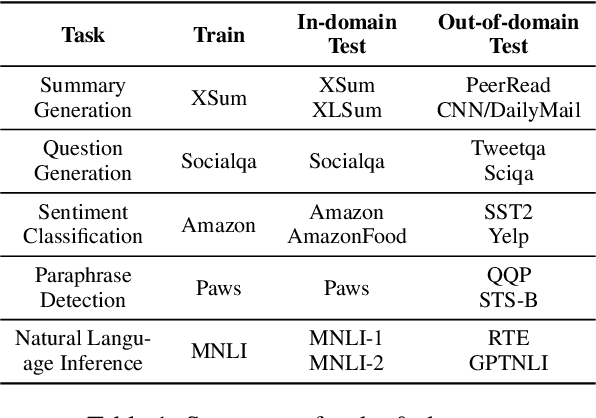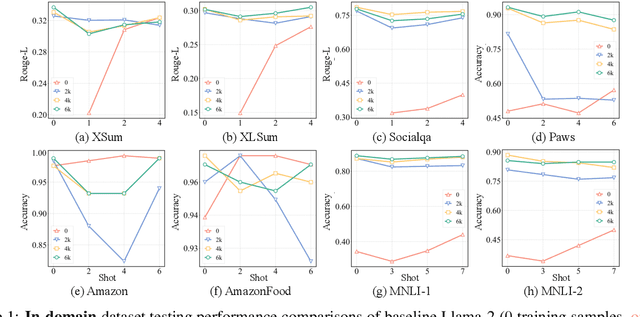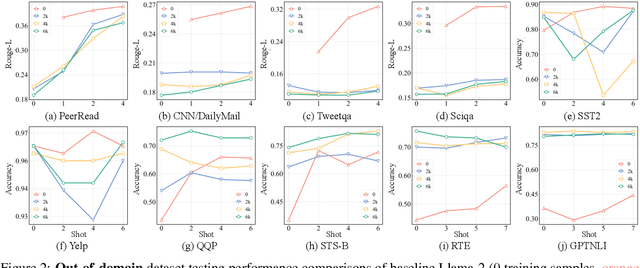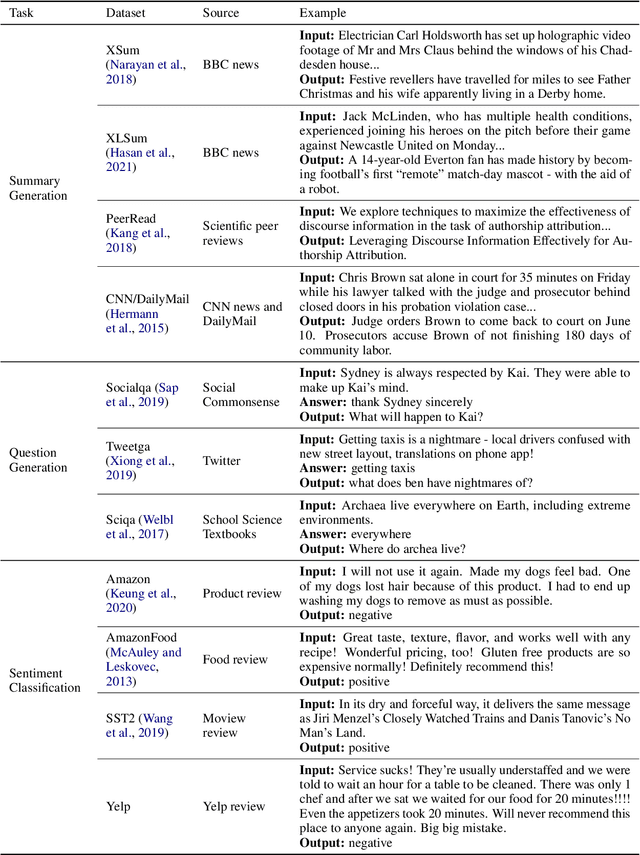Unveiling the Generalization Power of Fine-Tuned Large Language Models
Paper and Code
Mar 14, 2024



While Large Language Models (LLMs) have demonstrated exceptional multitasking abilities, fine-tuning these models on downstream, domain-specific datasets is often necessary to yield superior performance on test sets compared to their counterparts without fine-tuning. However, the comprehensive effects of fine-tuning on the LLMs' generalization ability are not fully understood. This paper delves into the differences between original, unmodified LLMs and their fine-tuned variants. Our primary investigation centers on whether fine-tuning affects the generalization ability intrinsic to LLMs. To elaborate on this, we conduct extensive experiments across five distinct language tasks on various datasets. Our main findings reveal that models fine-tuned on generation and classification tasks exhibit dissimilar behaviors in generalizing to different domains and tasks. Intriguingly, we observe that integrating the in-context learning strategy during fine-tuning on generation tasks can enhance the model's generalization ability. Through this systematic investigation, we aim to contribute valuable insights into the evolving landscape of fine-tuning practices for LLMs.
 Add to Chrome
Add to Chrome Add to Firefox
Add to Firefox Add to Edge
Add to Edge